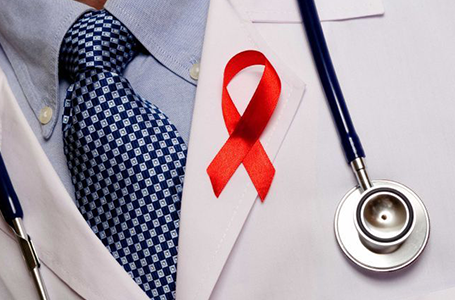what the experts say
 sea salt is the only salt brand to benefit from documented efficacy having undergone randomised double blind placebo medical trials on two continents 10 years apart and, as a consequence, has been positively profiled in the British Medical Journal.
sea salt is the only salt brand to benefit from documented efficacy having undergone randomised double blind placebo medical trials on two continents 10 years apart and, as a consequence, has been positively profiled in the British Medical Journal.
Recent government campaigns have warned against the consumption of excessive salt / sodium in our diet which is made up of the salt we use in cooking, the salt we add to food at the table, the salt which is to be found in further processed foods and that which is found in meals eaten away from home.

Staying healthy
Although our bodies require just 3-5g of salt (sodium chloride) per day, in the developed world we typically consume 10-12g through the salt used in cooking & processed foods, as well as the salt we add at the table. Scientific research shows that reducing the intake of traditional salt is one of the most effective ways to lower blood pressure, helping to prevent a whole range of disabilities & death from stroke & heart disease. Lowering blood pressure can also help reduce the risks of thrombosis, apoplexy & excess water retention during pregnancy.
Plus: Magnesium, Potassium & Calcium
SOLO® Original also contains magnesium & potassium as well as calcium, all three of which are also proven to help maintain healthy blood pressure.
Recent studies have shown the developed world’s populations are increasingly deficient in magnesium and potassium as we consume less seeds & nuts (both good sources of calcium & magnesium) and fresh fruit & vegetables (root vegetables are an especially good source of potassium).
Magnesium
One of the most effective ways to lower blood pressure is to change the balance of minerals in your diet. This is because the inner wall of arteries contains a layer of muscle that is either relaxed or contracted, depending on the balance of electrolytic minerals inside and outside the muscle cells.
When muscle contracts, blood pressure increases.
The minerals in question are calcium, magnesium and potassium, all of which relax the artery, and sodium which contracts it. If each of these first three are given in isolation, they significantly lower blood pressure. Conversely, reducing salt (sodium chloride) has the same effect. Of these, magnesium has the greatest effect. While the effect of each mineral individually is less than that of the common anti-hypertensive drugs, a combined increase in calcium, magnesium and potassium intake, coupled with a decrease in sodium, can dramatically lower blood pressure within days - equivalent to medication but without the side effects. Increasing calcium, magnesium and potassium has a more profound effect on blood pressure than reducing sodium.
Heart attack victims tend to have 30 per cent less magnesium and more calcium than controls. Cardiovascular risk is also higher in parts of the world where either the dietary intake or intake of magnesium from water is low, and lower in hard water areas, which provides more calcium and magnesium. Modern diets are deficient in magnesium, which is rich in vegetables, nuts, seeds and wholefoods and low in refined foods, meat and dairy produce. The average diet only provides 200mg, compared to the RDA of 300mg a day.
Professors Burton and Bella Altura, a husband and wife team from State University of New York's Health Science Center, have researched magnesium over three decades. They have conclusively proven that removing magnesium from the environment of blood vessels made them go into spasm, potentially halving the diameter of an artery. Increasing magnesium intake, especially for those with borderline deficiency, has an immediate effect on lowering blood pressure. As long ago as 1977 researchers from Georgetown University demonstrated an 11 per cent decrease in blood pressure by giving magnesium to those with hypertension. Since then the relaxing effects of magnesium on the arteries has been well established by numerous research groups. People with high blood pressure do frequently show lower levels of magnesium than those with normal blood pressure.
Calcium & Potassium
The ideal intake of calcium is in the order of 800mg to 1000mg a day. A study at the Oregon Health Sciences Institute by Dr McCarron and colleagues found these levels of calcium to lower blood pressure. While a survey by Queen Elizabeth College, University of London found that 73 per cent of women failed to achieve a dietary intake of 500mg. In doses of up to 1200mg a day, there is a linear relationship between increasing calcium intake and decreasing blood pressure and Calcium, taken in a 1:1 ratio with magnesium is most effective, balanced with a high intake of potassium. Fresh fruit and vegetables or their juices can supply several thousand mg of potassium.
SOLO® is recommended by the Vegetarian Society

REFERENCES
1 McCarron D. 'Role of adequate dietary calcium intake in the prevention and management of salt-sensitive hypertension'. Am J Clin Nut, 1997, Vol 65(2S) pp.712S-716S Osborne C et al. 'Evidence for the relationship of calcium to blood pressure'. Nur Rev, 1996, Vol 54 (12), pp.365-381 Whelton P et al. 'Effects of oral potassium on blood pressure' JAMA, 1997,Vol 2777(20), pp.1624-1632 Dyckner T. BMJ, 1983, Vol 286, pp.1847-49
2 Cannon et al. 'The effect of combined micronutrient supplementation on blood pressure'. 1990 ION library, London
3 Lancet, October 4, 1980
4 Turlapaty, P. and Altura, B, April 11, 1980. Science, Vol 208, pp.198-200
5 Altura B, Altura B. 'Magnesium in Cardiovascular Biology'. Scientific American, 1995, May/June, pp.28-36
6 Angiology, Oct 1977
7 The Booker Health Report 1985. Research by Queen Elizabeth College, University of London. Booker Health Foods.
8 Osborne, see ref. 1
9 Whelton, see ref. 1

